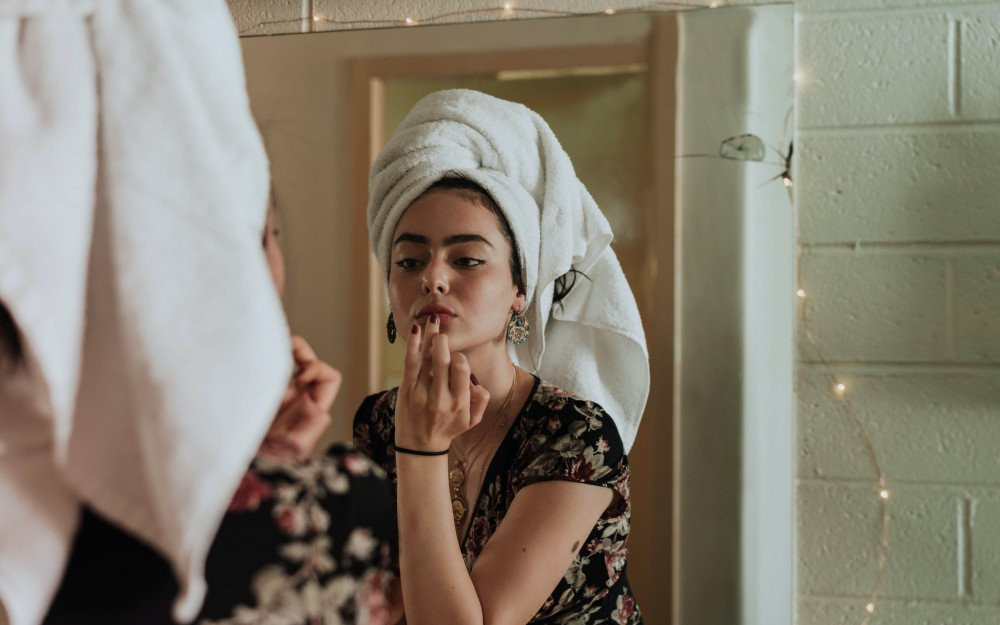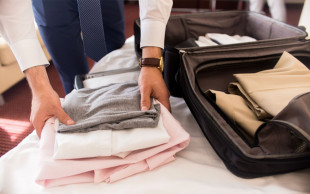Having travelled the world and witnessing extreme wealth on one end and extreme poverty on the other, Michelle Leong, Managing Director of 1010Life, decided something had to be done. With her extensive experience and expertise in Training, Coaching and People Management, she ventured into the heart of Philippines, IloIlo City, to create and jumpstart an Innovation and Entrepreneurship ecosystem - To Break Communities out of Systemic Poverty. STYLEGUIDE sits down with Michelle to find out more about her journey to Inspire Lives and Transform Communities.
How did you get started initially and what inspired you to do what you do?
Everything started in SMU Year 4 when I was talking to my professor and telling her that I enjoyed both communications and frontline publicity Public Relations (PR) work and at the same time, I also like the back end work of HR development.
My professor told me, “Find a job that overlaps”. I thought about it for a long time and realised that looking back, from the time I was growing up, I was always the one told to keep quiet in class – talking is my passion. That’s why I ended up training.
I was also involved in a lot of mentoring projects from my Junior College to University days. By the time I was 21, I had actually mentored about 160 people in total.
Hence, training, mentoring and coaching became a natural part of my life, and I figured since I was already doing it without being paid, it would probably be something I’ll be able to do for life.
What made you venture into the Philippines for Business?
Since starting in 2013, I had very reputable clients on my record but given the nature of the training industry in Singapore, the market was just too competitive and not sustainable enough.
After two years of struggling, I happened to go over to Iloilo, Philippines for voluntary community programs. Being an extrovert, I made too many friends there so I just kept going back for holidays.
Within six months, I noticed the extremely fast-paced development of the city. I thought to myself then, “All the developed cities in the world, when they develop, there’s one thing they lose – their heart. They will lose the care and empathy for people.”
I really like the culture of IloIlo, and I thought it will be very “Sayang” if they develop and lost the identity and warmth of the city in the process. So that became something I wanted to get involved in.
At the same time because I was doing community work at the village level, I was also meeting a lot of people who came up to me and sincerely asked for help because they’re really in poverty.
What they didn’t know was that I emptied out my bank account to go there every time.
I thought to myself, “I really have nothing to give to them.”
But of course, you don’t give them fish but teach them to fish. Since I’m a trainer, one conclusion is that actually the only thing I can offer is training.
What were some of the biggest challenges you've faced?
I think the greatest challenge was to actually learn business management.
I'm very much a people person, and in SMU I was almost never in class. I wasn’t a business student too. When I started, all I knew was either people management or communication skills. I didn't know anything about structuring or about investments.
The first time I signed a contract, I signed away 40% of my company without knowing it.
You see, I’ve made all these major mistakes so that's why I can now coach small companies. It's just life learnings. Now, I can actually say I went through the same difficulties they face, or worse.
Besides this, going overseas as a female to a province in a developing country by myself was also very challenging. It was almost as good as being cut off from society, and I had to understand a whole new culture, new sets of business laws, accounting laws – and I haven’t even fully understood Singapore laws!
It took me one and a half years to get the first part of my incorporation right in the Philippines. But after two and a half years, we realised what was incorporated was wrong, so now we are re-incorporating again. It also took me time to build up my network, thankfully all that is stabilised now.
What were some of your lowest points and how did you get through them?
I did go through a few cycles of depression because I was so overworked.
A few things kept me going.
I had one very clear vision and purpose and at the end of the day. No matter how depressed or distraught, I still wanted to make a difference and see a change in society.
Friends and family were there for me as well, because every time I called back and cried over the phone, they will ask, “Do you remember the vision of your company?” So they’re the ones who constantly kept me focused. At very critical points, I had friends who flew down to Philippines just to spend time with me. It made a lot of difference in terms of moral support.
The last factor is actually my staff. Sometimes, I couldn’t even pay them on time, but they stuck it out with me. And at all these junctures, they were also the ones who kept me going.
What is your main driving force?
My Advocacy is to Break Communities Out of Systemic Poverty through Entrepreneurship, Innovation and Collaboration.
I’ve travelled the world and been to a lot of places, I’ve seen extreme wealth but also poverty. I’ve seen two completely opposite ends, and it’s like seeing two different societies.
Every time a city develops, the income-inequality always goes up and that is something I don’t want to see happen. Five minutes walk away from my office in the Philippines and we can literally run past wealthy estates, followed by slums, and then hotels. The slums are right smack in the middle, and I always ask my staff, “Can you just run past and not feel anything?” Everywhere else is being developed and we’re just leaving the slum areas there.
I've staff who have gone through violence and trauma and their stories seem more fitting for the TV or cinema screen. Three out of four of my staff have been through this, and it’s quite a high percentage given that they are all educated. What about those that are not educated?
It’s a different world.
I felt like I was constantly in two worlds that were only separated by a flight of three and a half hours.
Two years on, after I being pulled into different conferences and circles, I am fast becoming a known advocate for entrepreneurship, innovation and collaboration. I am the Crazy Singaporean fighting for country side development in the Philippines.
What would you say is your purpose in life?
Inspiring Lives, Transforming Communities. 1010Life is really a personification of who I am.
Through the different business partners, I always fought tooth and nail to hold on to this company because no matter what happens, this is who I am. I might be a serial entrepreneur or go to different start-ups or initiate different projects, but that will be everything else other than 1010Life.
1010Life can never be bought or sold because this is something I want to build for life.
What is the change or impact that you want to make in this world?
I want to see us redefine how people see themselves and how people see one another. This relates back to the company mission, “Inspiring Lives, Transforming Communities.”
The mission is to champion self-discovery - we help people understand themselves because you can't understand others or appreciate others until you understand yourself.
Second is to build effective relationships. We want to move people from friendships and simply working together to actual productivity and actually build towards something.
The last one is to inspire transformation and that’s why for me I’m always very idealistic. I always think macro – so it’s transforming communities as a whole, or impacting economies and developing nations.
From my angle, it’s through training and development, advocacy work, being a speaker at events, connecting people or setting up communities. That’s as tangible as it can get.
What does success mean to you and what is the greatest success you’ve experienced?
I think my greatest success is my staff, they're like my kids. For the very fact that they have weathered with me through so many storms and they're still around, and I have really seen them mature through it.
We have done training programs that made the participants so impacted that they get so emotional. That feeling is very fulfilling.
The best thing for all of us is the team that we’ve built and currently have. Anyone of us can close two eyes and completely trust fall, knowing the team will catch us. We have all given very high sacrifices to be where we are at now; many of them had to battle their personal demons or past fears before getting a breakthrough to where they are now sharing the same vision.
Within 1010Life, they encountered their breakthroughs, and now they’re carrying that same passion back into the community.
What would you say was the single most influential factor in your success?
I had a good support system. My family and friends were very supportive. And I really appreciated all the mentors that have stood with me through success and failures. They were patient enough with me to allow me to make mistakes and pick me up again. They were the strength when I needed that extra boost. They made it all possible. I wouldn’t be here without them.
Can you share more about these mentors in your life and how they’ve helped to shape and guide you over the years?
I don't know if it's by chance, but I have a lot and they come in very specific ways with each having different specialisations. It wasn’t intentionally planned but they just happen to come – one advises me on accounting, one on business structuring and one on legal advice.
What strikes me for all of them is how much they are willing to invest into my life. They have the patience to sit down with me, teach and walk me through things, and re-align whatever is needed - even at no cost.
They do it in exchange for nothing, except for the fact that I’d better succeed. If it weren’t for them, I wouldn't be where I am now.
If you could give the younger generation one piece of advice, what would it be?
Take more risk. Why be so safe? Safe is boring.
The truth is that it’s only when I make mistakes that I learn the most, so don’t be afraid of failure. For me, I had never been afraid, although I was too risk immune to the point I really made a lot of mistakes.
If anything, one should have the mental resilience to bounce back. I think that’s the key thing for me.
What are your hopes and aspirations for the future?
I want my own plane like Air Force One. I hate being subject to airline schedules because I really move around so much and I do foresee that in the future I'll be even busier.
Conclusion: that’s why I need a plane so I can fly whenever I need to.
Okay, maybe we can start with a helicopter (laughs).
















